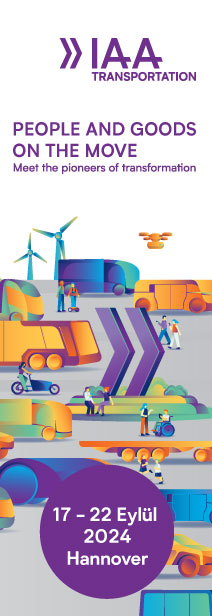Messe Frankfurt held the second edition of its “Energy4Mobility Expert Talk” series, in cooperation with the Representation of the State of Hessen to the European Union, on 15 March 2021. On this occasion, policy, industry and research representatives shared their views on the question: “Should the EU launch a Low Carbon Liquid Fuels Strategy?” The speakers agreed that a long-term strategy for low-carbon liquid fuels is needed at EU level to design the required policy framework and unlock the full potential of these types of fuels to support the EU’s climate neutrality ambitions.
Michael Johannes, Vice-President Mobility and Logistics at Messe Frankfurt, explained that the expert talk series is open to all technologies and covers all types of climate-neutral drive energies, from hydrogen to electricity, through biofuels and synthetically produced fuels, as “each and every alternative drive system has a role to play in helping Europe reach its climate targets.” Adina Vălean, European Commissioner for Transport, introduced the European Commission’s plans for establishing a long-term regulatory framework for aviation and maritime fuels. She pointed out: “Low-carbon liquid fuels will certainly play an important role for cutting aviation and maritime emissions by 2030.” Jan-Christoph Oetjen, Member of the European Parliament, called for a low-carbon liquid fuels strategy that embraces a well-to-wheel approach, whereby carbon emissions are assessed throughout a fuel’s full life cycle. This would help “ramp up production and use of low-carbon liquid fuels in the road transport sector, with a view to use them later on in those sectors which are more difficult to decarbonise.” John Cooper, Director-General at FuelsEurope, stated: “While there is no single technology which will address the challenge of decarbonising the entire transport sector, renewable and low-carbon liquid fuels represent a complementary, no-regret solution, across land, air and sea. A long-term European strategy would help drive demand for low-carbon liquid fuels in all three transport sectors.”
Low-carbon liquid fuels are sustainable fuel alternatives from non-petroleum origin. They can contribute to reaching carbon neutrality, as no or very limited CO2 emissions are released during their production and use. Time is nonetheless of the essence in fleshing out the strategic way forward for low-carbon liquid fuels in Europe, with demonstration at scale required in this decade for these fuels to deliver the greenhouse gas emissions reductions needed to achieve carbon neutrality by 2050.
First blended with conventional fuels, low-carbon liquid fuels have the potential to progressively replace traditional fuels, alongside other innovative mobility solutions, such as electrification, hydrogen and further emerging technologies. However, unlike some alternatives, low-carbon liquid fuels largely rely on already available infrastructure, and do not require the replacement of the existing vehicle fleet. Ultimately, by providing a further valuable choice next to other low-carbon technologies, these types of fuels are also making sustainable mobility options available for a wider group of consumers.










